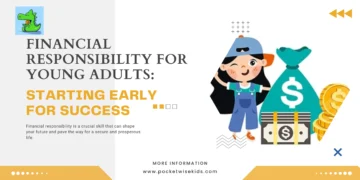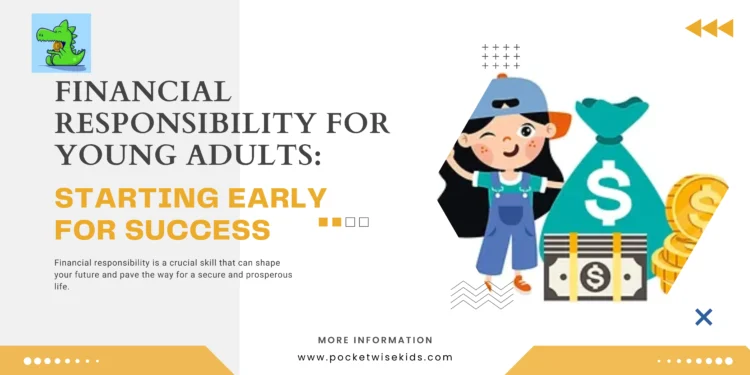Introduction
Financial responsibility is a crucial skill that can shape your future and pave the way for a secure and prosperous life. While it might seem daunting, especially for young adults just starting their journey into financial independence, taking the initiative to learn about and practice responsible financial habits can be incredibly empowering. In this article, we’ll provide a comprehensive Guide To Financial Responsibility for young adults, offering valuable tips and insights to help you set yourself up for financial success.
- Create a Budget
One of the first steps in achieving financial responsibility is creating a budget. Start by listing all your sources of income, such as your job, freelance work, or any other income streams. Next, track your monthly expenses, including rent or mortgage, utilities, groceries, transportation, and entertainment. This will give you a clear picture of your financial situation.
Allocate a portion of your income to different categories like savings, bills, and discretionary spending. A well-structured budget will help you manage your finances effectively.
- Set Financial Goals
Establishing clear financial goals is essential for motivation and direction. Whether you’re saving for an emergency fund, a dream vacation, or paying off student loans, having specific objectives will keep you focused on your financial journey.
- Build an Emergency Fund
Life is full of surprises, and having an emergency fund is your safety net when unexpected expenses arise. Aim to save at least three to six months’ worth of living expenses in your emergency fund. This will give you peace of mind and protect you from falling into debt during challenging times.
- Manage Debt Wisely
If you have student loans or credit card debt, make it a priority to manage and pay down your debts. Consider setting up a debt repayment plan that suits your financial situation. Strategies like the snowball method or the avalanche method can help you become debt-free more efficiently.
- Save and Invest
Saving is not enough; you should also consider investing your money to make it work for you. Learn about various investment options, like stocks, bonds, and mutual funds, and consult with a financial advisor to create an investment strategy that aligns with your goals and risk tolerance.
- Establish Credit Responsibly
Building good credit is vital for your financial future. Use credit cards wisely by paying off your balances in full each month and maintaining a low credit utilization ratio. A strong credit history will make it easier for you to qualify for loans and lower interest rates in the future.
- Live Within Your Means
Avoid the trap of lifestyle inflation, where you increase your spending as your income rises. Instead, focus on living within your means and saving the extra money for your financial goals.
- Save for Retirement
While retirement might seem far off, starting to save early can make a significant difference in the long run. Contribute to a retirement account like a 401(k) or an Individual Retirement Account (IRA) to secure your financial future.
- Seek Financial Education
Take the time to educate yourself about personal finance. Read books, follow financial blogs, and consider taking online courses or attending financial workshops. The more you know, the better equipped you’ll be to make informed financial decisions.
Conclusion
Financial responsibility for young adults is an essential skill that can set you on the path to Financial Success and independence. By following this guide to financial responsibility, you can build a solid foundation for your financial future, avoid common financial pitfalls, and enjoy the benefits of sound financial decision-making. Remember, starting early and making wise financial choices today will pay off handsomely in the years to come.
Pocket Wise Kids is a fictional organization that focuses on promoting financial literacy among children. Through their engaging and educational resources, Pocket Wise Kids aims to equip children with the necessary skills and knowledge to make informed financial decisions. Children's financial literacy is an important topic to address, as it sets the foundation for a lifetime of responsible money management. By teaching children about money early on, we empower them to develop good financial habits and make sound financial choices as they grow older.
























































